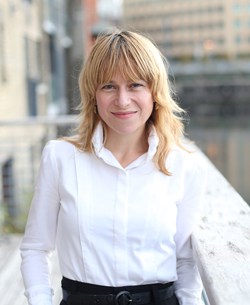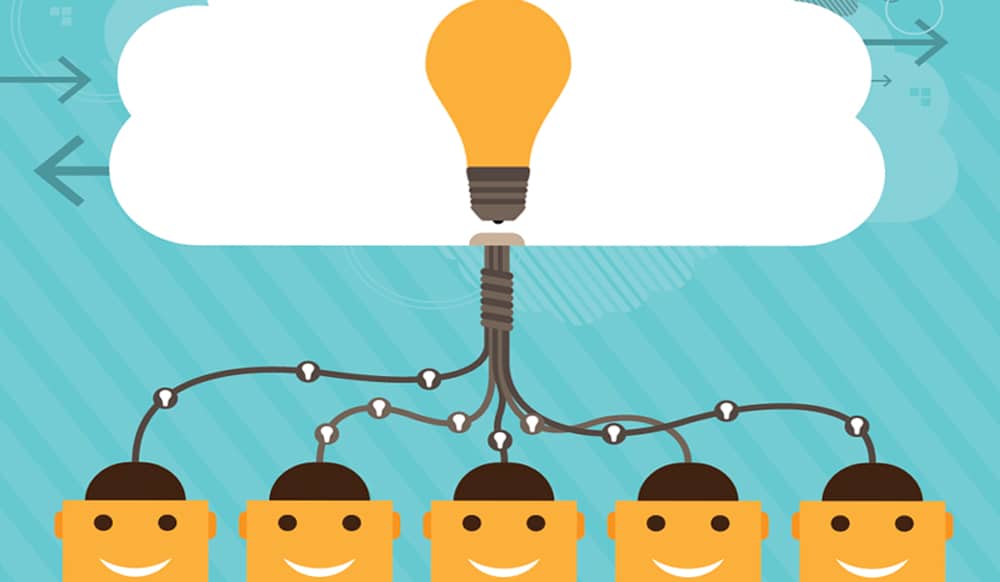Dublin’s first Commissioner for Start-Ups, Niamh Bushnell tells Niamh Mac Sweeney why nurturing and activating Dublin’s start-up ecosystem is crucial.
In the US, companies less than five years old created 44 million jobs over the last three decades and accounted for all net new jobs created over that period. Scaling that to Ireland’s population for the same period would equate to 630,000 jobs created. This is one of the findings of the Activating Dublin report which was spearheaded by a number of key business stakeholders, including Dublin Chamber of Commerce and Dublin City Council.
Given that Dublin was voted the ‘Best City in the World to Start a Business’ (2013), the ecosystem is already very buoyant, but harnessing that further and maximising on this reputation of being a great place to start and grow a business, is an ongoing endeavour.
ENCAPSULATING THE ECOSYSTEM
Niamh Bushnell is Dublin’s first Commissioner for Start-Ups, a role that was created as a direct result of the Activating Dublin report. In Bushnell’s role as Commissioner she is responsible for maximising the potential of the tech start-up ecosystem in Dublin, acting as a voice and informing the world that Dublin is a great place to establish a business.
“It’s all about going out and telling people why Dublin is an excellent location to start a business,” Bushnell says, “but its more than just attracting businesses here, it’s also about attracting individuals.” According to Bushnell, that could be anyone from engineers or investors, to specialists in different sectors.
“Of course, the reputation piece is to attract people to Dublin, but it’s also to give start-ups who are coming out of Dublin and going into the world a context. When people hear that you’re a Dublin born and bred company, they are aware of the great things that are happening in the start-up space here, and so it gives them a good introduction and a foot in the door.”
GLOBAL REPUTATION
Although Ireland’s reputation is highly regarded around the world, the pace of change across business and the extent of globe competition, means it’s a story that needs to be constantly told and invigorated.
“We have to keep telling that story for the sake of our companies and to attract new companies and individuals here,” Bushnell points out. “But equally, we have to see what’s missing. Where are the dots not connecting? Where are other people driving forward similar initiatives and how can we work more effectively together?”
According to the commissioner, in order to harness the ecosystem to its full potential, we need to be more focused and more purposely connected. “We should pilot some things that aren’t being done today and see if they work. If they make sense for the community, then the community should take them over and run with them,” she says.
When people hear that you’re a Dublin born and bred company, they are aware of the great things that are happening in the start-up space here, and so it gives them a good introduction and a foot in the door
MENTORING FOR SCALE
The commissioner’s office runs a number of initiatives and activities including: 1st Friday Brekkies, a publication called Dublin Globe, the Dublin Data Initiative and the Start-up Community Fund.
But according to Bushnell,“We have a lot of serial and highly experienced entrepreneurs, but they don’t spend time with young scaling companies because often they don’t know them. When you go to events in Dublin you will see your peers – other companies that have product, have some early stage revenue or funding or are a super early stage start-up with a concept. But what you generally don’t see are what I call the ‘elder lemons’ of the industry – the guys who have built multi-million dollar companies or who have successfully exited.”
While serial entrepreneurs are extremely busy people, Bushnell says they are still interested in connecting with the new generation and the next wave. However, she says, there is no real structure for them to do that in a measured way. Her office is addressing this through its mentoring for scale programme, which she says is: “no-brainer kind of stuff”. “It’s about seeing where the community is – which is very active already – and connecting it more with what it needs,” she adds.
THE NEXT CHALLENGE

Niamh Bushnell, Commissioner for Start-Ups
Bushnell agrees that one of the key challenges for the start-up ‘movement’ is finding suitable office space in the city. This problem will not be solved overnight, but she says her office is focused on addressing this issue also.
In 2012, a Start-up Entrepreneur Programme was introduced which enables non-EEA nationals to secure residency status in Ireland when setting up a business here. While this was seen as a very positive move, take-up has been low, and Bushnell believes more needs to be done to promote it so that those figures increase.
Clearly, Ireland’s start-up community is vibrant, diverse and determined. There have been many start-ups established here which have gone on to enjoy huge international acclaim.
With a strong start-up ecosystem, combined with a strong presence of some of the most innovative multinationals in the world, Dublin is proving to be quite appealing to emerging enterprises, serial entrepreneurs and investors. Now that we have established this reputation, and given that we are viewed internationally as one of the best places in the world to set up a business, retaining it and growing it further will be the next challenge.
TOP TIPS FOR ENTREPRENEURS
Speaking at InspireFest in June, Niamh Bushnell shared lessons from her days as an early stage entrepreneur:
- Having a perspective from one side of the table, as a mentor and angel investor, doesn’t help you when you become an entrepreneur. The minute I crossed that bridge and lifted that lens I was deaf, dumb and blind all over again. I was emotionally involved again. I fell in love with my product’s features and functionality again and cared less about the actual market. And that’s a very dangerous place to be. Always be market driven.
- Being busy is not the same as being productive. It’s nice to be known and saluted the minute you walk into a networking event. It’s nice to have a calendar full of coffees. These things can make the lonely entrepreneur feel like they’re accomplishing something, but the chances are you’re not helping your business. I’ve lived in that false economy of busy and it’s another dangerous place to be.
- Like New York, Dublin’s start-up ecosystem is maturing and you’ve lots of choice in the third-party talent you engage for your company – the legal and accounting firms, PR and marketing folks, mentoring programmes and workshops … even investors. You may be just a start-up now but you’re going big places and to get there you need to have the confidence to seek out and demand the best support you can get from the ecosystem that surrounds you.
- There are no shortcuts. No one out there in the world has the answer for you and your business – no mentor or investor, no matter how experienced, can tell you how to get the most bang for your buck on your marketing budget, or where to focus your business development efforts, or what your pricing model should be. It’s your job as an entrepreneur to go through the discovery process in a systematic way and find the light at the end of the tunnel.
- Tech is challenging. If your product has tech, and you’re not tech, become an expert listener and communicator, quickly. I had a super smart, super patient technical co-founder and we still struggled every day to communicate on product-related matters. In a world where you speak different languages, you discover soon enough that yes can actually mean no, no can mean maybe and maybe can mean product trade-offs you don’t want to make. Every day must be a successful team communication day.







